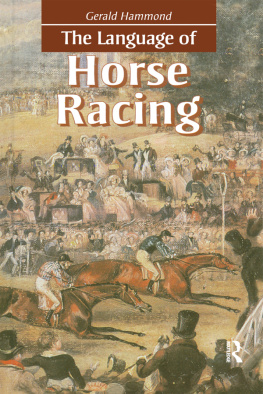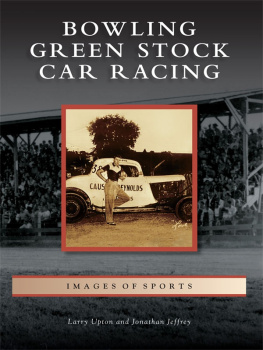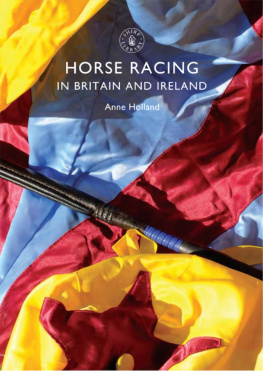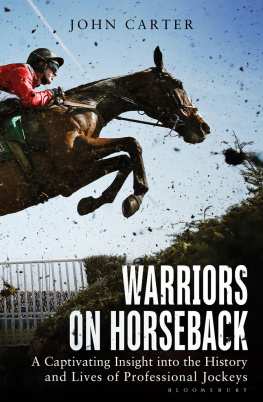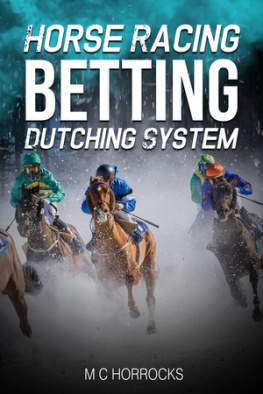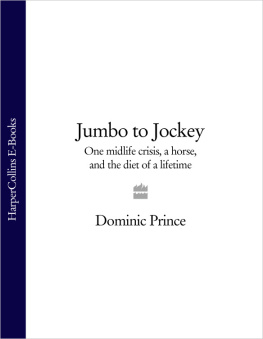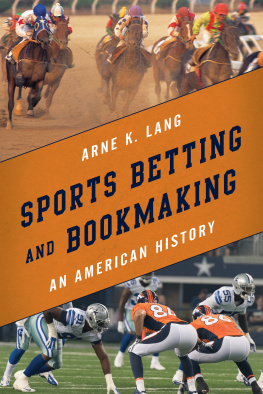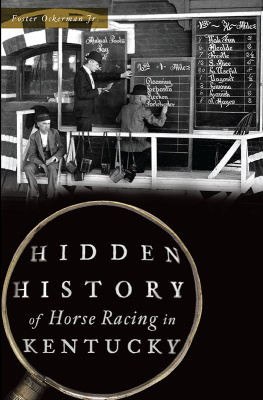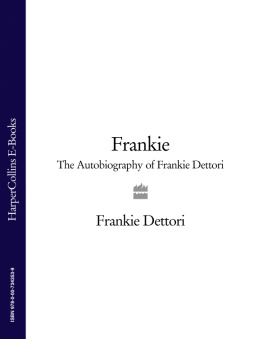The Language of Horse Racing
The Language of
Horse Racing
Gerald Hammond

First published 1992 by Fitzroy Dearborn Publishers
Published in the United Kingdom as Horse Racing: A Book of Words by Carcanet Press Ltd
Published in the USA 2000
This edition published 2016 by Routledge
2 Park Square, Milton Park, Abingdon, Oxon, OX14 4RN
711 Third Avenue, New York, NY 10017, USA
Routledge is an imprint of the Taylor & Francis Group, an informa business
Gerald Hammond 1992
Typeset in 9pt Plantin by Bryan Williamson, Darwen
A Cataloging-in-Publication record for this book is available from the Library of Congress
All rights reserved, including the right of reproduction in whole or in part in any form
ISBN 13: 978-1-57958-276-0 (hbk)
General Editors Preface
This series offers a new conception and analysis of the vocabularies used in our sports, pursuits, vocations and pastimes. While each book contains an essential lexicon of words and phrases explored historically and in depth each also contains generous quotation, practical reference, anecdote and conjecture. The result is more than a dictionary: specific, inclusive, thought-provoking, each volume offers the past and present through a weave of words, in all their curiosity and delight.
Those intrigued by the language particular to their area of interest will find the relevant book a coherent and challenging treatment of the topic; those interested in the English language itself will find the series yielding significant material on semantic scope and change; and general readers who wish to understand the vocabularies of human endeavour will find the series tracing the necessary but implacable relationships between words and world.
Editors, chosen because of their intimate enthusiasm for their subjects, have been encouraged to be comprehensive in their coverage: vocabularies typically range from the demotic to the esoteric, from slang to the technical and specialised. Within that range, emphasis is also placed on how each lexicon developed, and why its terms acquired their peculiar descriptive power. These are books to read with pleasure as well as keep on the reference shelf.
Gerald Hammond
C. B. McCully
Acknowledgements
The author and publisher would like to thank the following for their kind permission to reprint copyright material:
Elizabeth Eliot and Longman for Portrait of a Sport; John Hislop Esq. for From Start to Finish; the Estate of Vincent Orchard for Tattersalls; Peter OSullevan Esq. and Random Century for Calling the Horses; the Racing Post and Sporting Life.
My chief debt, as it is for anyone who undertakes serious lexicographical work, is to the OED. We thank Oxford University Press for permission to include material from the Dictionary.
Every effort has been made to contact copyright holders, but the author and publisher apologise if any inadvertent omission has been made.
Introduction
A surprisingly large number of people make a living from horse-racing: jockeys, trainers, stable staff, valets, clerks of courses and their staff, racing journalists, bookmakers, settlers, tic tacs, betting-shop managers and counter clerks, compilers of form guides, and even a few professional punters. One mans career is anothers hobby, and for many more people racing is a pleasurable pursuit. A list of these would include punters of the armchair and more active varieties, amateur jockeys, members of the Jockey Club, stewards, and, most of all, racehorse owners, very few of whom ever make any kind of profit from the game. Neither of these lists is remotely complete. Think of handicappers, commentators, starters and their assistants, among those whose careers are in racing, and among the hobbyists are book-makers like myself. The racing connections stretch on and on, each group having its own stock of words and phrases which make up the language of horse-racing.
Because horses were so important to our culture for so long, their words have contributed much to the general language. Career and hobby are good examples. A career was, first, a race-course, then it described a gallop at full speed, and now it summarises a persons progress through life. A hobby was originally a small horse, then, as hobby-horse, it described the wickerwork figure of a horse used in morris dances, then a toy, until it emerged as a favourite occupation pursued merely for amusement or interest.
Some words or phrases in the general language seem to come from the world of horses or the racing of them, but turn out to have no such origin. A last ditch effort describes very well a chaser trying to keep up with the pace as the field jumps the last open-ditch, and flying colours exactly evokes the spectacle of the race seen from the rails, but both phrases really come from the battlefield. Others which one might not have suspected begin, like career, on the racecourse, or at least, like hobby, among horsemen. Cavort originally described a horses capering. Curry favour derives from the curry-comb used in the rubbing down of a horse. Daisy cutter described a horses action long before it was used about balls which keep low in cricket. Gingering up was a singularly unpleasant practice of horse dealers. To back out of something recollects the way a horse comes out of its stall; in a lather conveys the way it sweats, and, corrupted, becomes hell for leather. Motor vehicles have near and off sides, pull up at the lights, and break down. Henchman, from Old English hengest, a gelding, was an early kind of stable lad. A wild goose chase did not describe frantic efforts to catch a bird for the pot, but an early form of horse race; as did handicap, whose origins are as odd as the ways in which this word has broadened into the general language.
Some common phrases are more obviously racing terms: winning hands down, for instance, or neck and neck, staying the course, and having a run for ones money. Others need a little thought: easy going, geed up, and flea-bitten are examples. And in some cases the horse connection has to be traced carefully. Manage and interfere have certain limited racing usages now, which seem only to be byproducts of the words applications to a large variety of pursuits and practices in modern society, but both entered the language as words which had solely horse senses.
Many of these words and phrases will be found here. With nearly 1100 entries, ranging from specialised terms like furnished, scope, or peck, to common expressions like get on, get out, or get up, my aim is to explore and explain the language of the racecourse. To collect every word connected with horses would have resulted in a multi-volumed work, so I have operated on two basic principles of exclusion, leaving out words which one would be unlikely to encounter now, or in earlier days, on a racecourse, and generally omitting words whose meanings are so obvious that they have nothing of interest to offer about the history of racing or the way it is practised now. So, while the word mount is omitted, although it is in common use on the racecourse, the word leg is included. Every horse has four legs, apart from the ones I back, and everyone knows what a leg is just as they know what a mount is; but there are other kinds of legs in racing history, and to describe a horse as having a leg means more than it seems.
Next page
